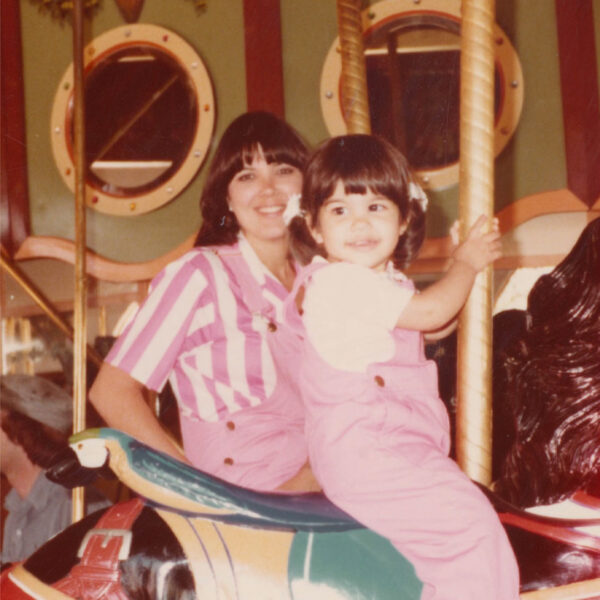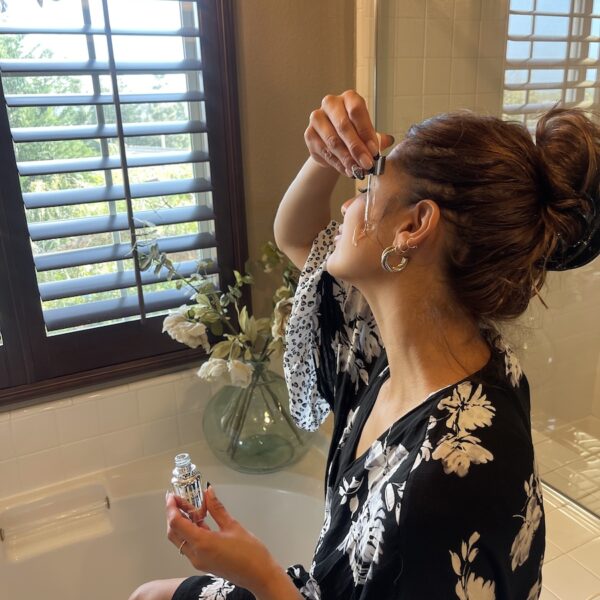We tend to be the center of our own universe, and that’s OK. It makes sense, really. We live inside of ourselves, and everything we do affects us and those closest to us. But, to dangle the age-old vital reminder, everyone else’s lives, emotions, and actions do not revolve around us. Thus, making things personal, when they almost never are, is a constant hurdle.
The holiday season rouses many anxieties. Arranging time off, affording holiday gifts for all those we love, a frenzied uptick in our workload to wrap it all up before we take said time off, and that precious time spent with family. Most of us adore our families, but they don’t come without their share of complications and conflict. Politics, the result of leading separate lives, age gaps, and so on can all leave us in a vulnerable state of angst and worry.
So how do we prevent ourselves from absorbing it all? There are disagreements, intergenerational trauma, fundamental belief differences, and more. But when is energy ours to keep, and when does it belong to someone else? We spoke with addiction, relationship, and wellness specialist, Erica Spiegelman, to give us some pointers.
When faced with passive aggression (hello old friend, the mother wound? Anyone?), how do we avoid harboring resentment and the tendency to spiral?
“Try to put yourself in their shoes,” Spiegelman suggests. Sounds easy, but is a little tougher to effectively do. Ask yourself some questions to shift the spotlight.
“Could they be jealous or envious of you? Maybe they have insecurities. What is their family role? Try to understand what the person is feeling and thinking and what is their capacity to convey it.”
Not that passive aggression just comes from mothers—it can easily be a sibling, cousin, or otherwise. Jealousy from mothers sounds almost unheard of; don’t they always want the best for you? But it’s actually rather common. They might see you living the life they wished they’d actualized for themselves. Maybe you’re more well-traveled. Better educated. More career-oriented. Someone can be both happy for you and holding on to feelings of resentment and insecurity about their own lives. This feeling is theirs, not yours, even if it’s being pushed on you verbally and energetically.
Try not to jump to conclusions that what they say or how they act is personal.
“Most of the time, people are projecting their own biases, their issues, and their needs onto you!” Spiegelman says.
Was that comment they just made about you as a person, or on differing beliefs based on different upbringings, social circles, or past traumas? If you know a lot about their past and their current circumstances, meet it with compassion, instead of angry defense. Pull yourself out of your emotional response and reflect on the fact that their actions may be a result of their own emotions, in which case you could actually help support them, instead of adding gas to their fire.
Will it matter in five years?
“This method I use a lot,” Spiegelman shares.
“Ask yourself, what was just said, does it really matter? And will it impact you in five years? If it’s not worth fussing over, let it go.”
“Letting go” seems to be the distilled theme here, but of course, that takes practiced action. Try breathing and grounding practices before seeing family, and take a step away in the other room to practice them again when conversations get tense. Continue to ask yourself, is this mine?
Emotions are not something to be pressed down, so let yourself feel them. But don’t allow yourself to harbor them and make them about you, personally. Become emotionally well-lubricated, so to speak. As if you’re coated in oil, so that everything else pearls off in beautiful, sparkling beads. The practice of becoming an emotionally well-oiled machine is a practiced one, so give yourself time. What better moment to start than now?
Up next, be the first to know our weekly content and sign up for our Poosh newsletter.






































